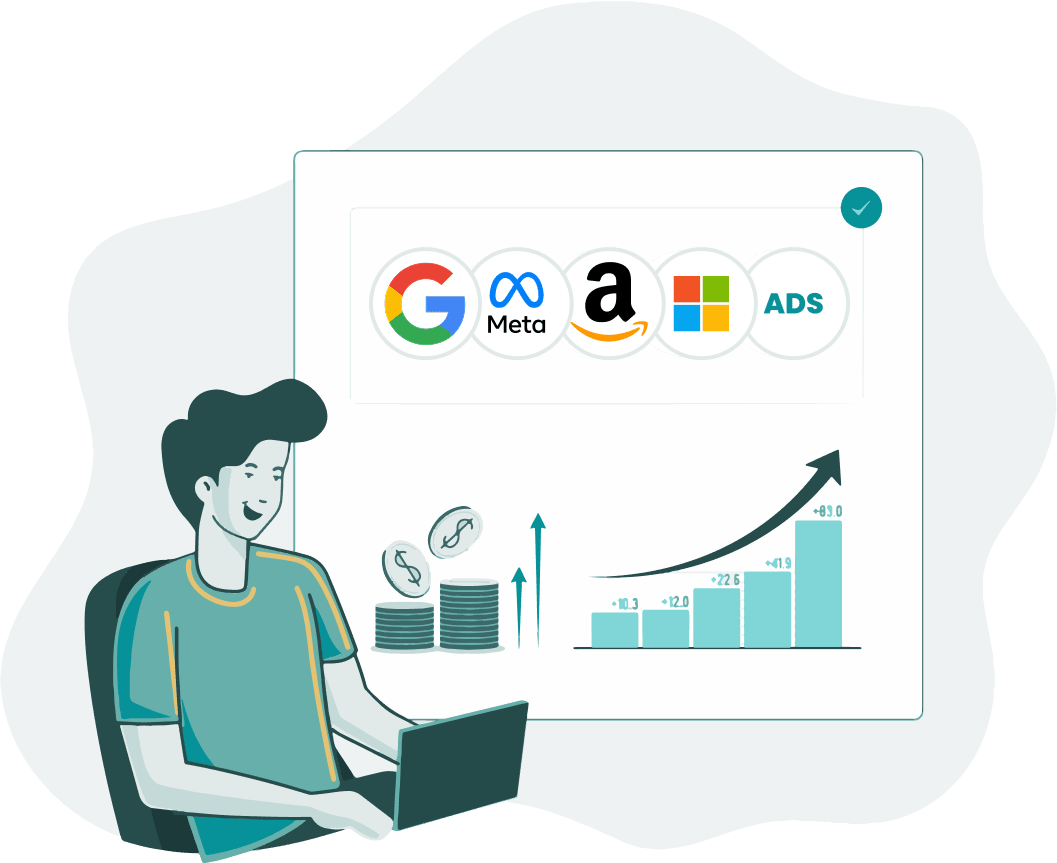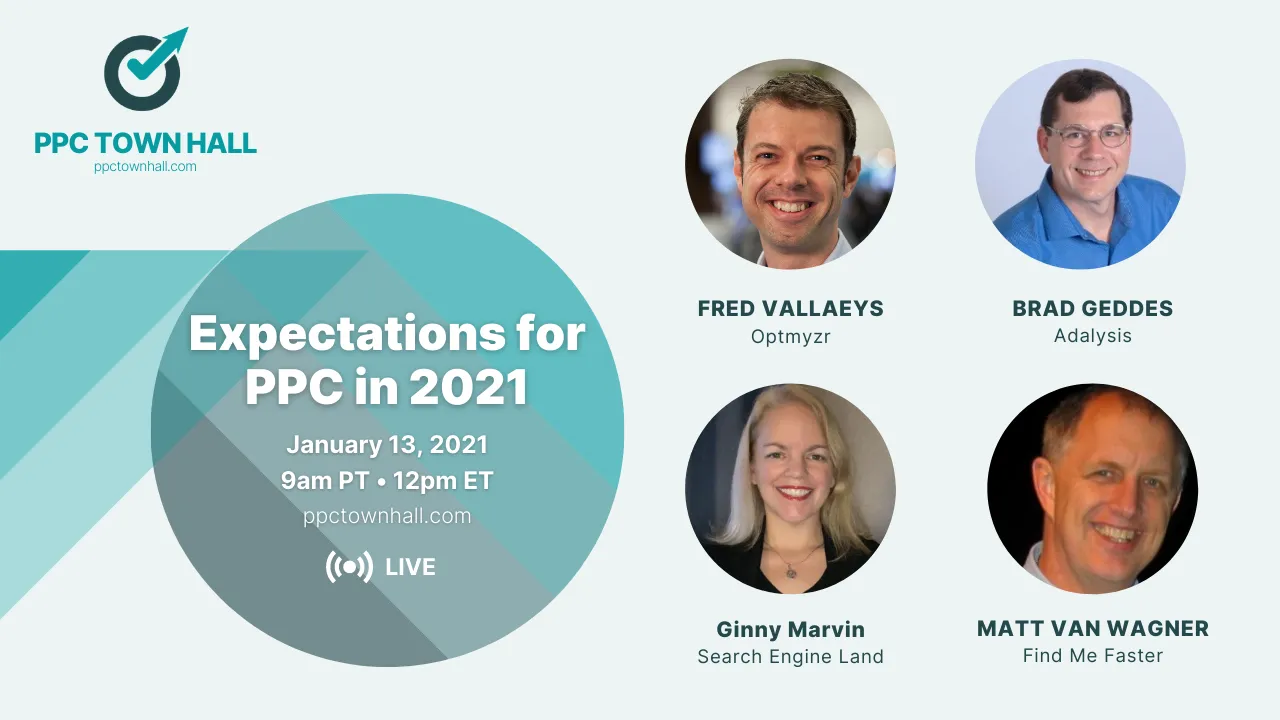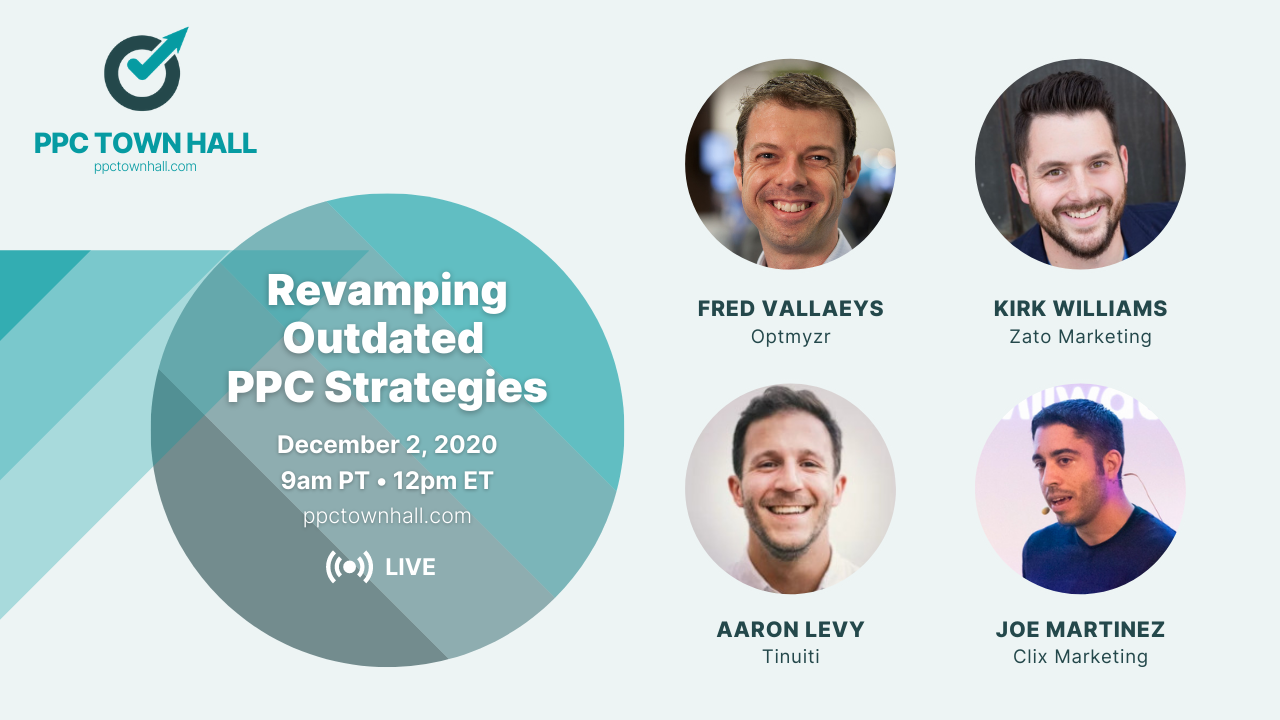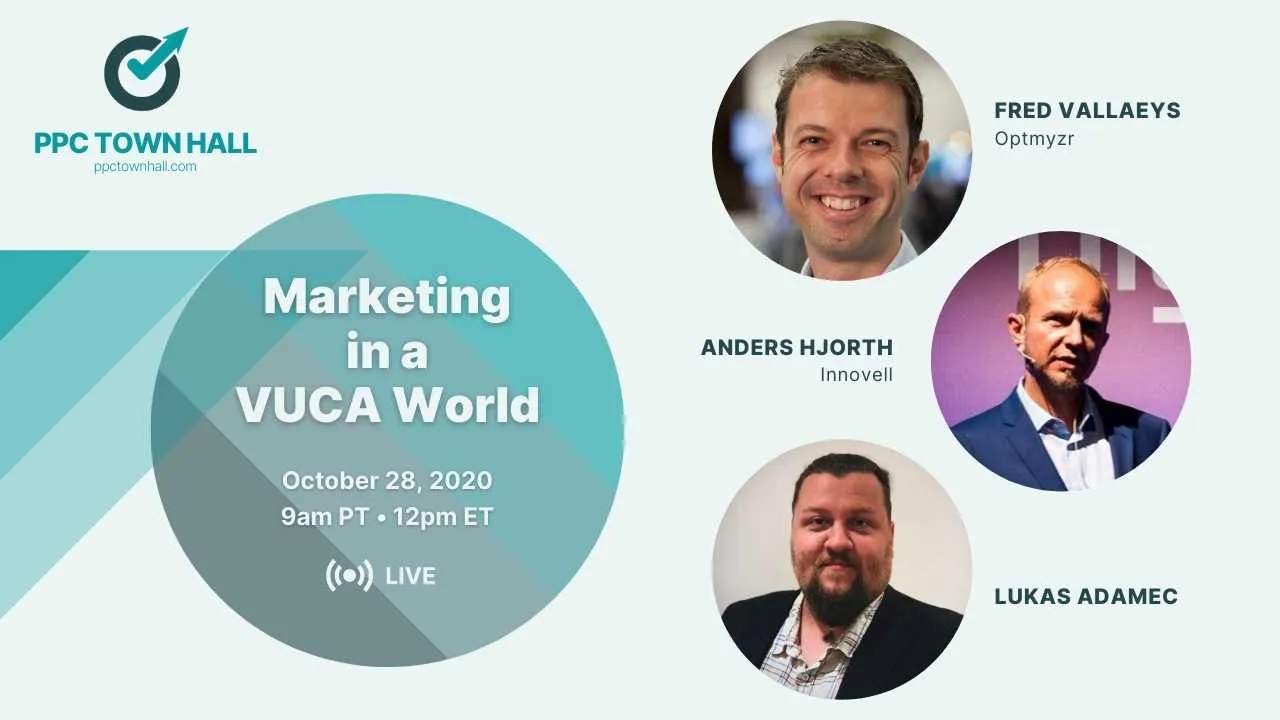A common theme that we’ve all been talking about is how Google keeps automating more and more of the things that we as PPC practitioners tended to do. For an in-house team, this shift to automation might just be a godsend. They can do more work with less effort due to access to so many Google tools. But for an agency, this poses a completely different question. PPC agencies have to constantly evolve their strategies to provide value to their clients. But what processes will they need to deploy to remain competitive? And what can they really expect from automation tools in the market today?
So in this episode on PPC Town Hall, we asked some of the influential agency leaders to share their tips and tactics on growing a PPC business while making use of automation.
- Wil Reynolds, Seer Interactive
- Anu Adegbola, Brainlabs
- Max Traylor, The Max Traylor
- Tim Halloran, Aimclear (special guest)
As always, you can view this week’s episode as well as previous editions of PPC Town Hall right here.
Here are 5 insights on how leading agencies succeed in an automated PPC world.
1. Marketing strategy and older marketing resources
Wil: I have been lucky a few times where I’ve come up with a concept that has affected a good chunk of the industry. And these concepts came to me when I read things that usually the industry doesn’t read. So for a while, I decided to read books about marketing pre-1940. Because people back then had to go door to door, connecting to people and understanding their problems. So when you start reading books from that far back, you start finding ways of looking at the same marketing problems today. It’s just that we are so entrenched in PPC perspectives that we forget that we are still solving problems that were there for people 100 years ago.
The way that our world is going everyone is trying to find an algorithmic solution. So when everybody’s running one way (what keywords do I have to use in the title to please the algorithm), I’ve been studying the different types of ads and how they’ve connected to people in a meaningful way before the internet existed. And then I try to incorporate that into the way we do on a daily basis.
My favorite books on advertising are by Claude Hopkins called ‘My Life in Advertising’ and ‘Scientific Advertising’. Claude was literally talking about doing A/B testing, by going door-to-door conversing face-to-face, which was super inspiring to me.
2. Focus on getting loyal customers than clicks
Anu: We’ve got to be really careful about not just being all about ‘technology’ or ‘automation’. After all, it’s people who are at the end of all these clicks and reading our ads. It’s really important to try to think like a customer. When we look at an ad, what attracts us to click? What attracts us to click on a brand or get affiliated with a brand? All these decisions stem from who they are. Branding is important and knowing what that brand stands for, what they believe in, diversity, environmental consciousness, etc., are ultimately things that get loyal customers. I feel that we’re moving away from trying to build loyal customers and becoming too much about getting that ‘click’.

Wil: We don’t interact with our customers anymore. We don’t. We sit behind our tools. We’ve no idea what’s going on with them. One of the things that we started doing, and are slowly scaling in, is videoing our clients that are going through our search results and have them talk to us and understand their concerns. You become a very different level of a consultant when you talk to somebody. So often we look at these keywords and automation but don’t try to understand these people on a deeper level. But if go that one level deeper and find the right things, it could completely change the way you go to a market for a client. It’s because that ‘why’ will never show up on Google Ads.
3. Business of implementation
Max: Price premiums for implementation, doing these things with Google Ads, are going away.
If you want to build a job for yourself then you do what everyone else knows how to do and do it a little bit better. If you want to build profit, want people to seek you out, then you better invest in having the knowledge no one has. This all comes down to fundamentals: focus on a particular customer segment, understand who they are, what they want, and where they hang out. If you do this, people are bound to pay you a premium.
4. An automation ‘reformed skeptic’
Tim: I guess you can say that I am a reformed skeptic and that’s due to a lot of reading about when automation works and when it doesn’t. So I won’t say that I am a total believer in automation, but I’ve definitely eased up a little bit and gotten used to using it in my daily life.
I’ve been doing PPC for the last 10 years. And there wasn’t a lot of automation in the industry back in the 2012s or 2014s. I think when we got ‘lookalikes’ on Facebook by the end of 2015, which wasn’t working great at that time. But in 2017, everyone loved it. It had so many data inputs and it was working really well. Then they pulled back all the third-party data and the ‘lookalikes’ stopped working again. So it’s been pretty chaotic to go back and forth. Sometimes machine learning and automation work really well, and then they don’t, and then then they force it upon you. You have to find ways around it. So yeah, it’s a complex relationship for me.
5. In-house technology and funding good ideas

I am still learning about scripts. But my perspective as a business owner is ‘where can I fund good ideas?’ I tend to start from a place where I don’t want my team members to do ‘X’ task, or I don’t want them to have to worry when they have to check something. So, I’m constantly focused on being a vessel for really good ideas to come in really quickly, direct to the CEO or owner of the business, because I control what we do with our profits. So it’s very easy for me to direct resources and funds to people who solve problems. I want people’s jobs to be as enjoyable as possible. A part of my job is to understand what brings people down and take away their creativity. And I try my best to automate or outsource those to points in some way so that the team is efficient and increasing the quality of the work.
Conclusion
Only a week back, Google announced that it will soon phase our Broad Match Modified keywords and change how Phrase Match functions. Changes like this only mean one thing: the shift to automation is an inevitable one. While you don’t necessarily need to fear automation, making use of its capabilities can actually help you ease a lot of processes.
As an agency, it is important that you take a look at your strategies and talk to your clients to understand them on a deeper level. After all, no one can diminish the ‘human’ in this equation of a more automated PPC world. We just have to work around, get creative, and find solutions. Google might keep changing the playing field, but have to construct it using our own techniques to make it work for our clients.








